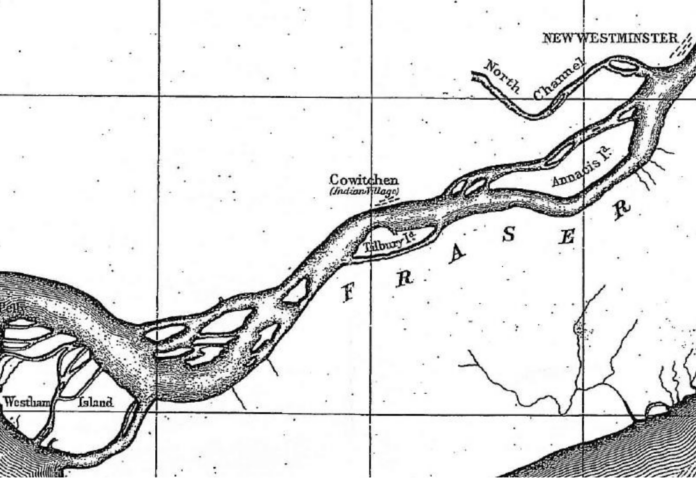Closing oral arguments begin today at Duncan’s courthouse in the Cowichan Nation’s BC Supreme Court trial seeking the recovery of a traditional village site along the Fraser River in Richmond.
The arguments are scheduled to last until July 7 in Duncan, and will conclude at BC Supreme Court in Victoria in September.
BC Supreme Court began hearing the case in 2019, which claims Aboriginal title to land where a village was located on the south shore of Lulu Island in Richmond.
The court action also seeks to re-establish the Cowichan Nation’s Aboriginal right to fish the south arm of the Fraser River for food.
Evidence has been presented in court of a permanent village with 108 longhouses belonging to the Cowichan Nation, first observed by Hudson’s Bay Company officials in 1824.
The village was later charted as a landmark by HBC on the main channel of the Fraser River.
The village was observed and charted through the late 1850s and onward during surveys by Britain for the international boundary between what is now Canada and the United States.
The Cowichan Nation states “during reserve creation beginning in 1859, Chief Commissioner of Lands for the Colony of British Columbia, Colonel Richard Moody, failed to finalize the village and surrounding land as a Cowichan Indian reserve, and instead surreptitiously took part of the lands for himself.”
Chief Lydia Hwitsum says they “fished, traded, and gathered berries and other resources,” and the village was part of the Cowichan Nation homeland.
She says it was stolen and they “want the lands that are held by government returned,” which involves more than 780 acres (316 hectares) owned by the government of Canada, the Vancouver Fraser Port Authority and the City of Richmond.
Chief Hwitsum says they aren’t looking to invalidate the ownership of any privately held land, the case is about truth and reconciliation between the Cowichan Nation, Canada, and British Columbia.
The Cowichan Nation Alliance is comprised of Cowichan Tribes, Stz’uminus First Nation, Penelakut Tribe, and Halalt First Nation.






